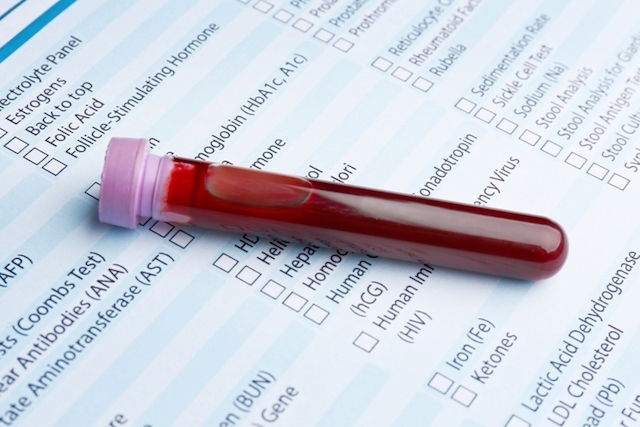Amylase is a digestive enzyme that is produced by the pancreas and salivary glands. It is responsible for digesting the starch and glycogen found in food. Generally, the amylase blood test is used to help diagnose pancreatic diseases, like acute pancreatitis, and is normally ordered together with the lipase test.
The doctor can also order a urine amylase test, which helps to assess kidney functioning. This test is often ordered when treating kidney failure to assess the effectiveness of treatment.
Amylase test result should be assessed by the ordering doctor together with the patient's presenting symptoms, as well as other test results.

Normal amylase levels
Amylase levels are considered to be normal in the following groups:
- Patients under 60 years of age: between 30 and 118 U/L
- Patients over 60 years of age: up to 151 U/L
Normal amylase levels may vary depending on the lab and the technique used to collect the blood. Results should therefore be interpreted by a health care professional.
Test results
Amylase test results can help diagnose conditions associated with pancreatic and salivary gland malfunctioning. It is most commonly used to diagnose acute pancreatitis, as amylase values in the blood increase greatly in the first 6-12 hours of pancreatic inflammation.
High amylase
Amylase may be high with the following conditions:
- Mumps
- Acute and chronic pancreatitis
- Biliary tract diseases such as cholecystitis
- Peptic ulcer
- Pancreatic cancer
- Obstruction of the pancreatic ducts
- Viral hepatitis
- Ectopic pregnancy
- Renal insufficiency
- Burns
- Use of some medications, such as oral contraceptives, valproic acid, metronidazole and corticosteroids
In most cases of pancreatitis, blood amylase levels will be 3 times higher than the reference value. However, this high level does not correspond to the severity of pancreatic damage.
Amylase levels usually increase within 6 to 12 hours and return to normal within 4 days. Despite this, in some cases of pancreatitis, amylase levels may be normal or just mildly elevated, which is why it is also important to check lipase levels of a pancreatic condition is suspected.
Low amylase
Low amylase levels are more common in hospitalized patients, especially in those receiving glucose. In these cases, patients should have their amylase levels re-tested after two hours to determine if the results are reliable.
Low amylase levels may be a sign of permanent damage to the cells responsible for the production of amylase., which can occur with chronic pancreatitis, for example. These should be confirmed through other laboratory tests.






























